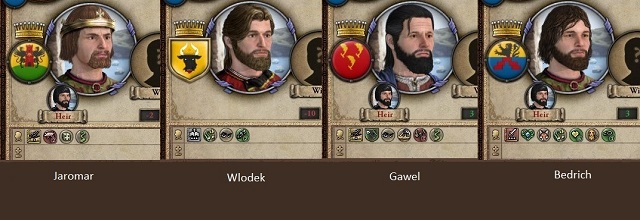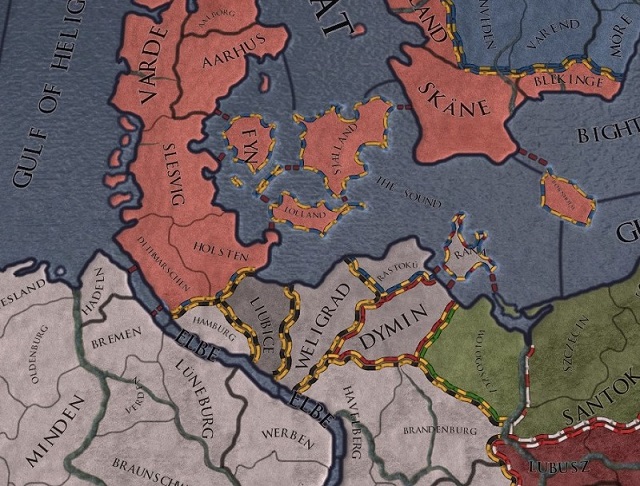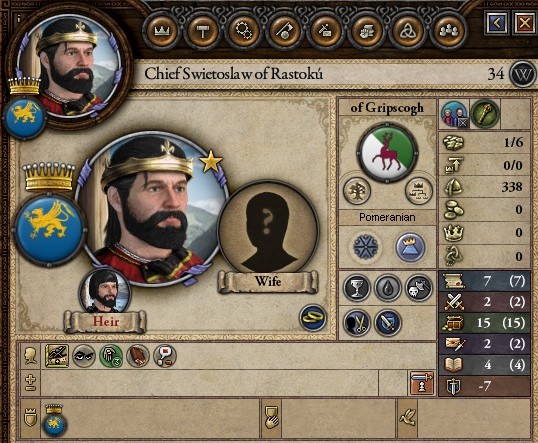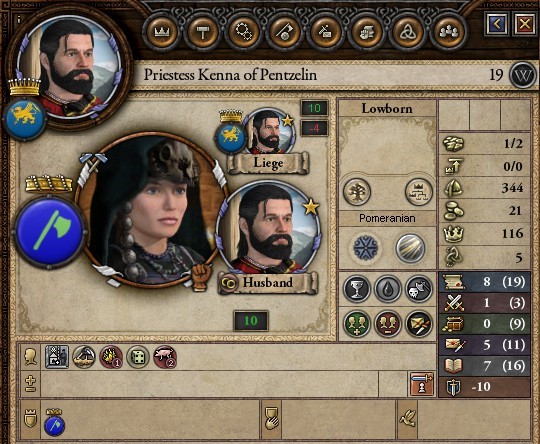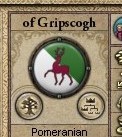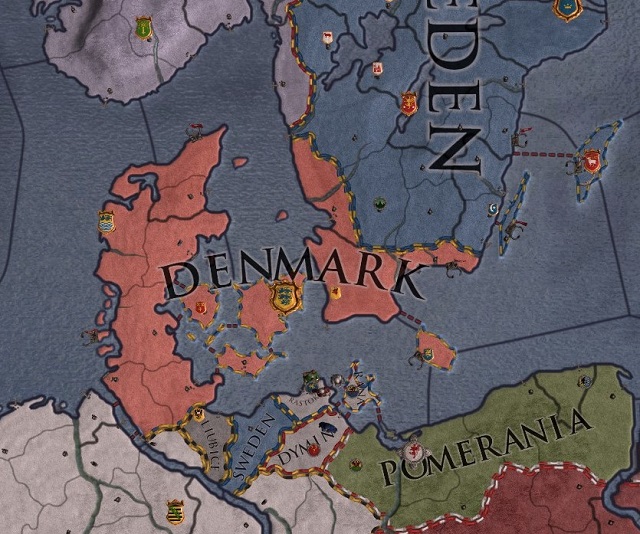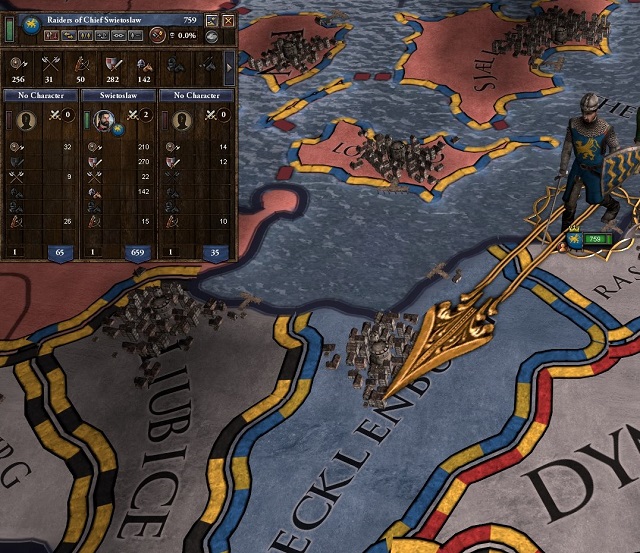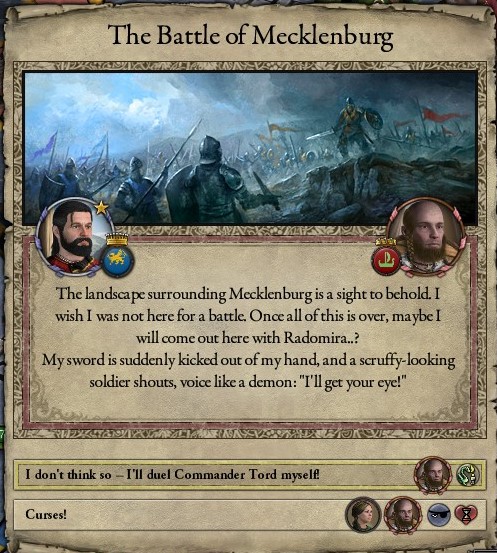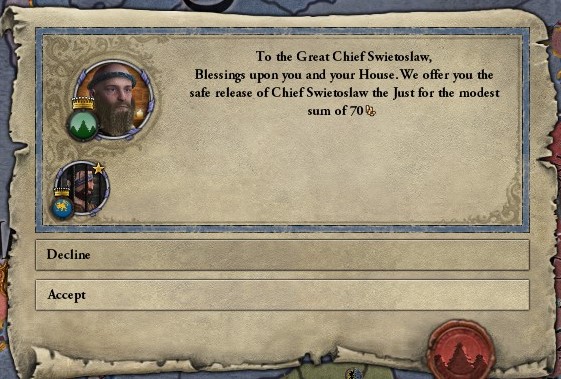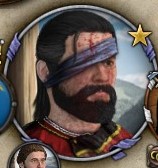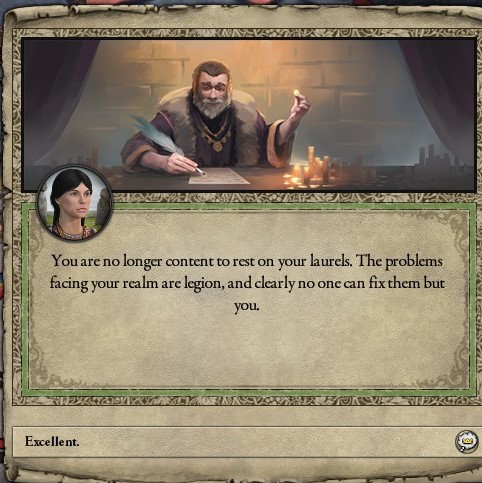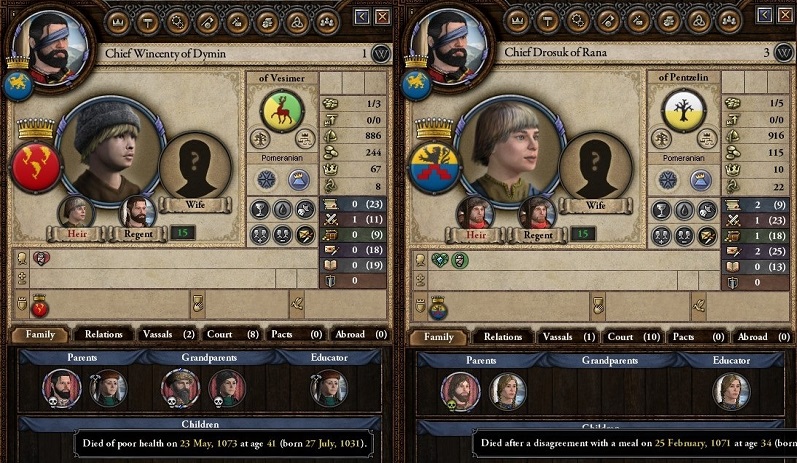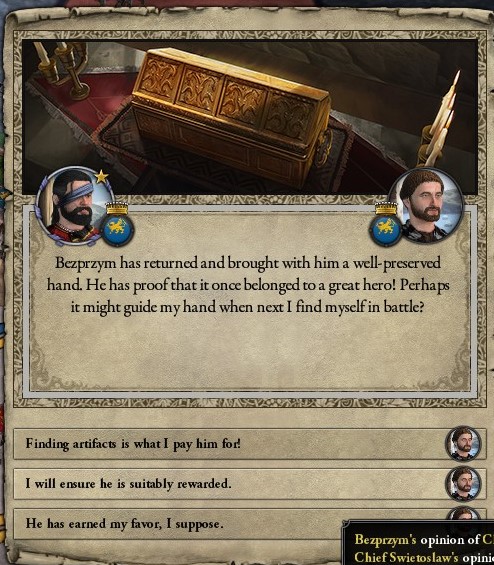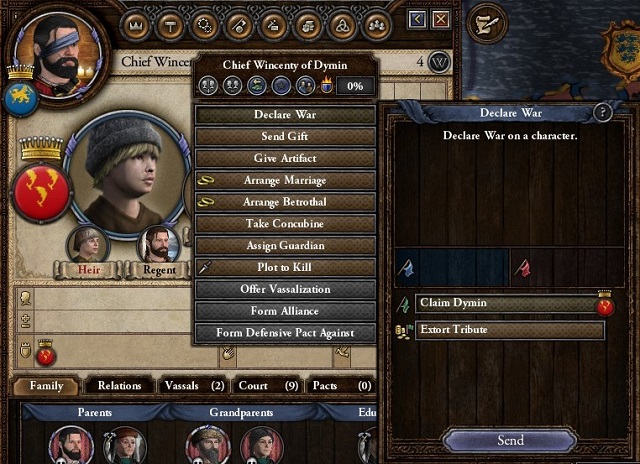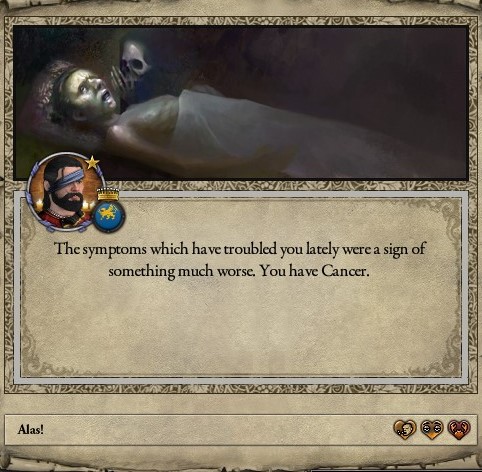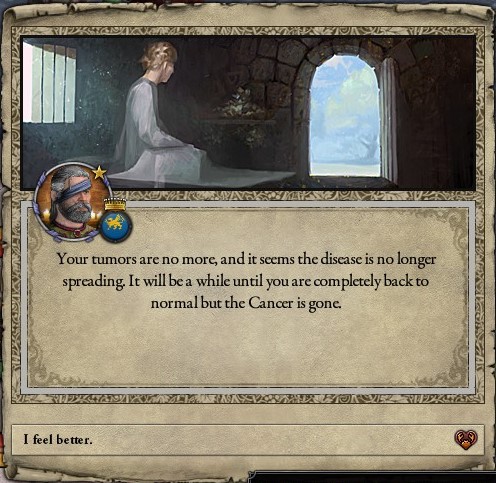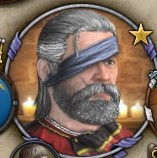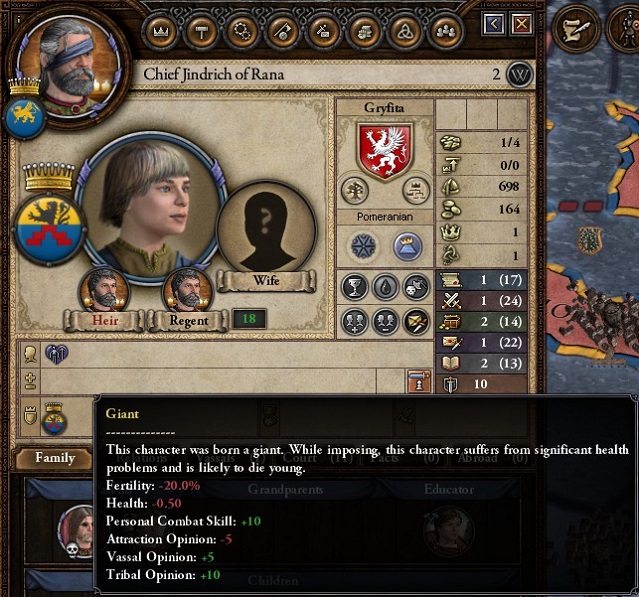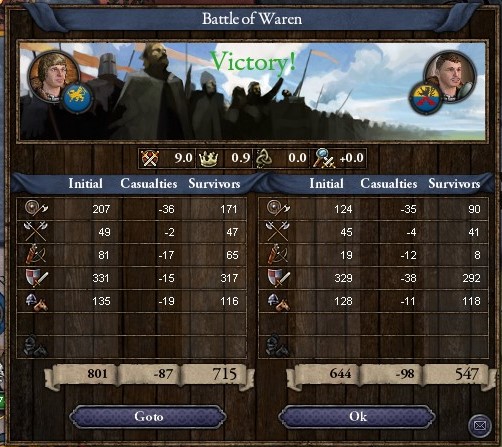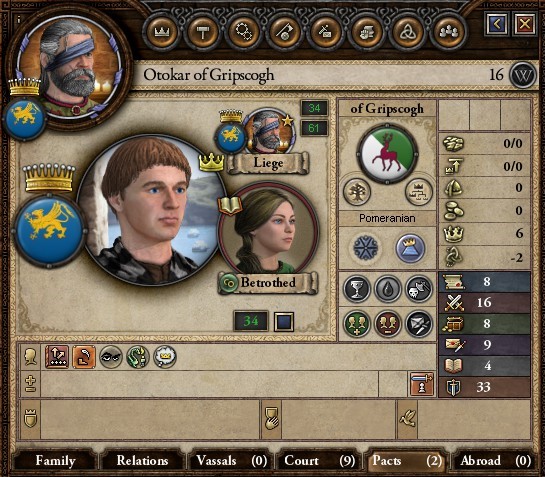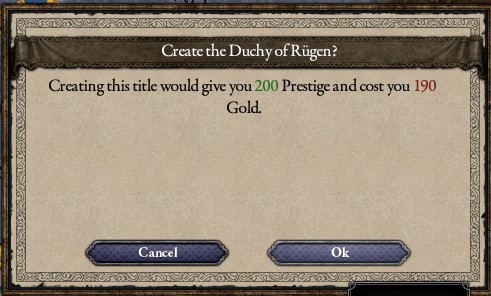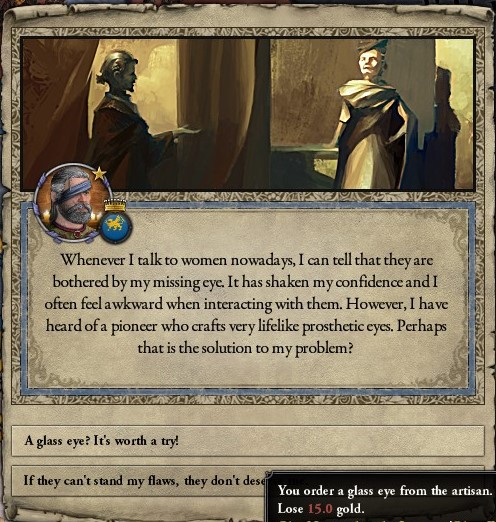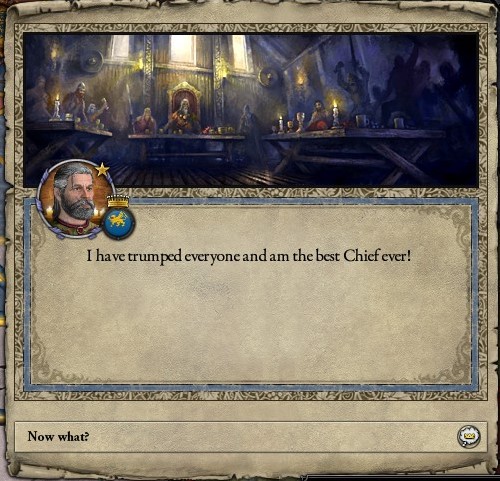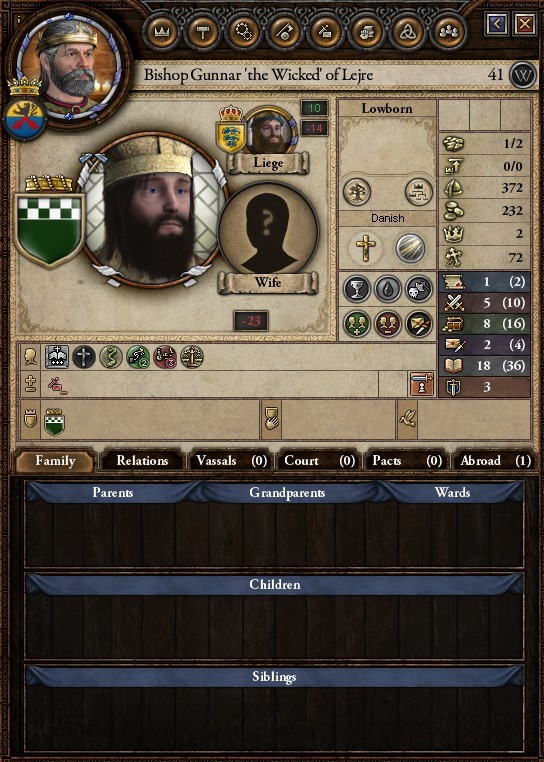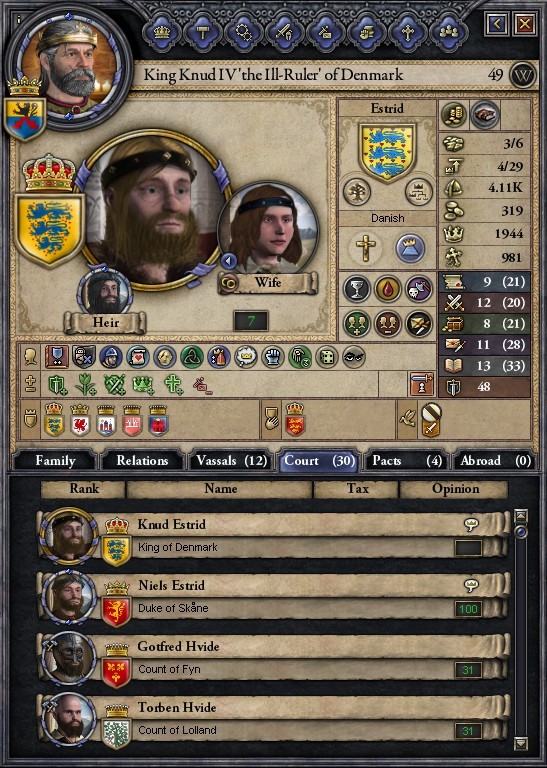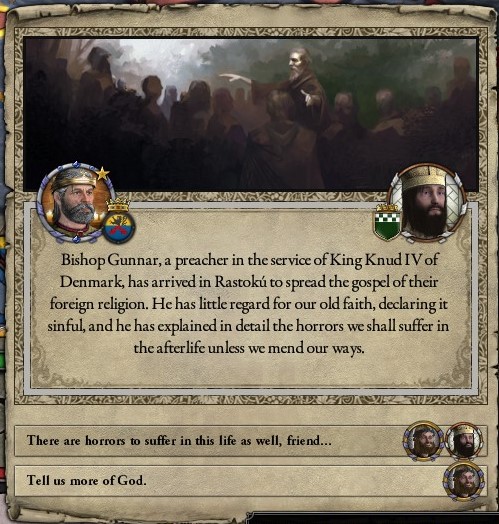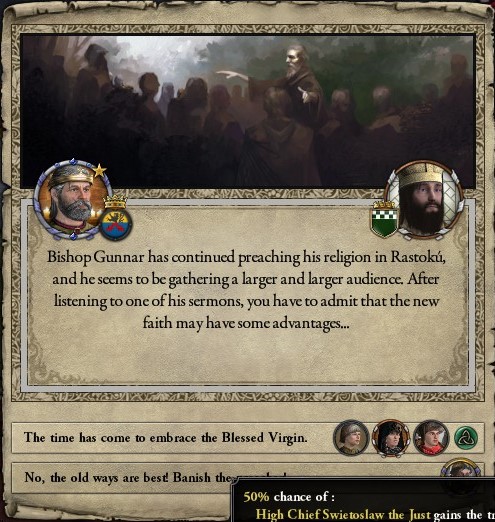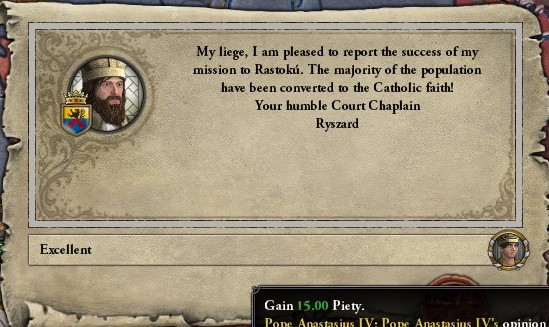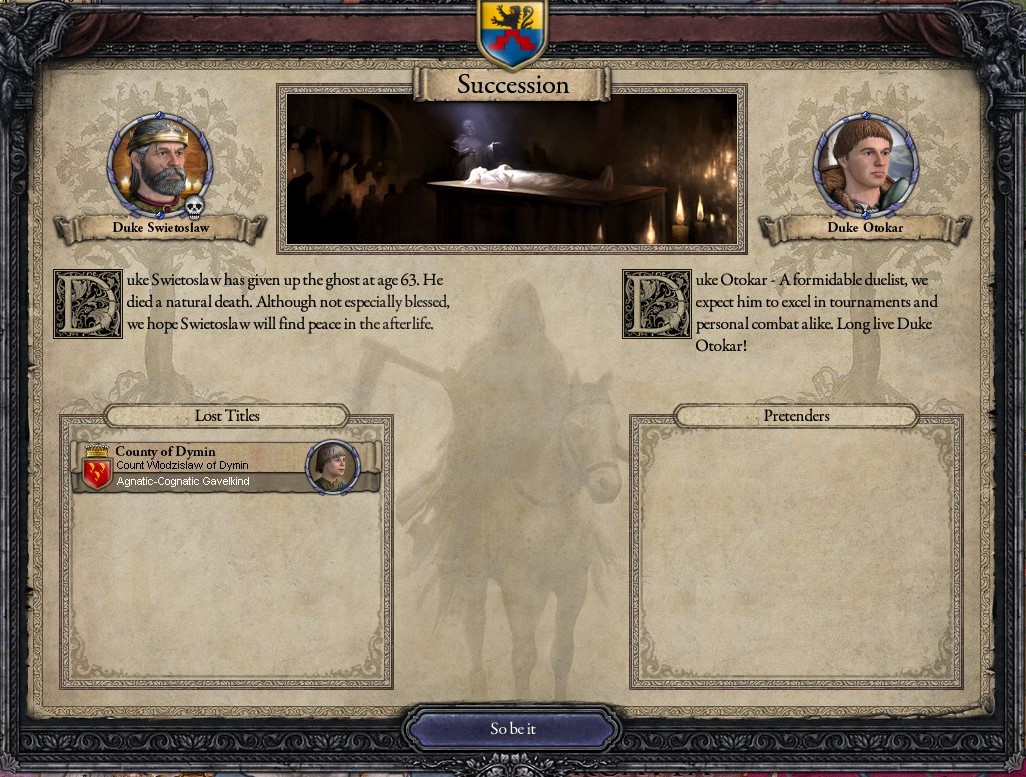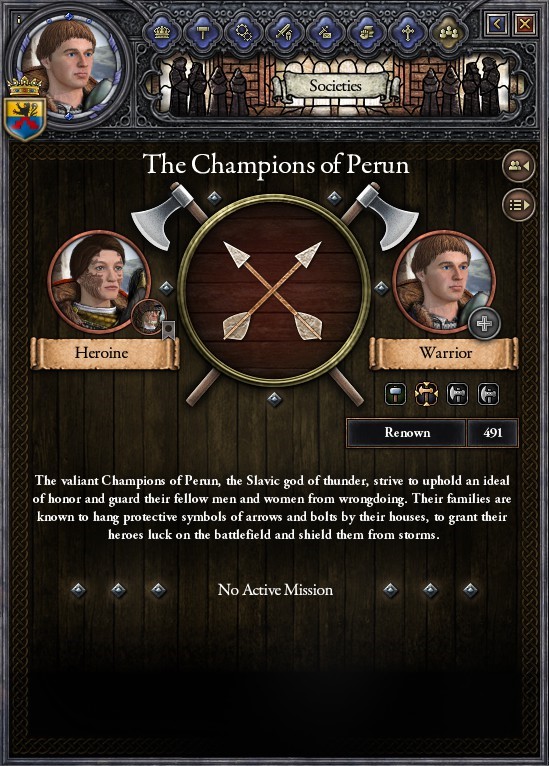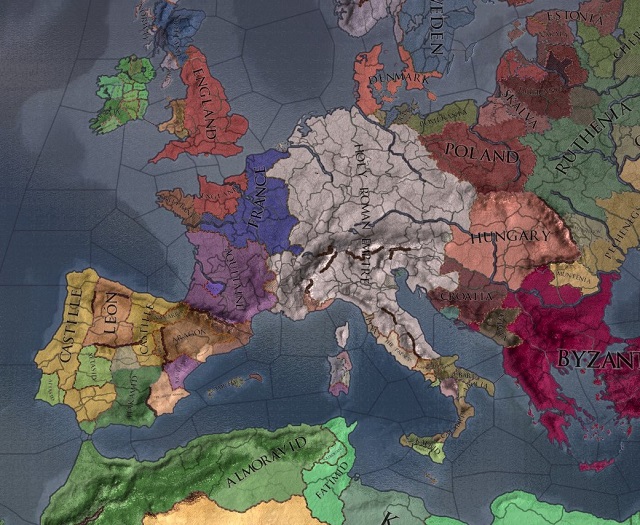Even as war was being prepared for, Swietoslaw knew he would need help for the upcoming war. A heavily fortified island is nothing to scoff at. And so he reached out to chief Jaromar, who had bent his knee to the High chief of Pomerania, only to find he had passed away, much like the other chieftains. His young son ruled, but that wasn’t to say the regent currently ruling the nation wouldn’t be opposed to an agreement. And so it was that the betrothal between Otokar of Gripscogh and Irena of Waren was arranged, an alliance was forged, and the chiefdom of Wologoszcz was brought into war.
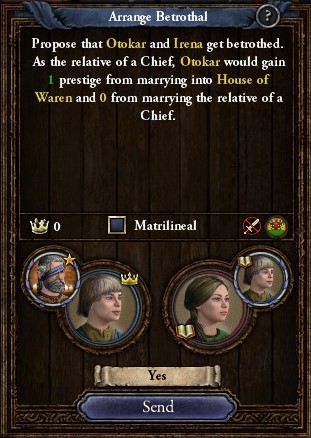
Minor skirmishes defined the small war for the chiefdom of Rana. Brave commanders charged into battle expecting death, and some even meeting it. Ultimately, the war was won after the army of Rana was crushed after a daring amphibious assault on the island, composed of joint forces of Rastoku and Wologoszcz soldiers. After a month-long siege, the castle gave, and the three counties were now under one chief.
Swietoslaw returned triumphant, and soon after his son Otokar became of age, a brilliant strategist. Trained for warfare because deep down, Swietoslaw knew that Otokar would be in far more war than he was.
In a grand ceremony, the man who united the three chiefdoms declared himself high chief of Rana. And the bookkeeper was now a local power.
---
Swietoslaw sat in his castle, the former town hall fully converted to the capital of such a region. As he listened to the concerns of the town’s elders, a young man walked into the palace, smiling to reveal several missing teeth. He dropped to one knee, a courteous bow before standing and pulling a large leather bag forward.
“What is your name boy?” Swietoslaw asked.
“Grodzislaw, and I am a very skilled artisan who can help with your eye.”
“My eye is perfectly fine, boy.” Swietoslaw said, glaring at the young man with his good eye. Long since used to having one.
“Yes, but surely it would be nice to appear normal once again, no?”
If Swietoslaw were less just, less principled, he would have had the boy executed. Instead, he stood up and slapped him.
“Respect your elders!” Swietoslaw said.
“I mean no offense!” Grodzislaw said, rubbing his cheek. “I am a glass eye maker, from Bohemia. And I can help, if you give me funds and time to measure your eye.”
“I ought to-” Swietoslaw said, trailing off as he said it. A new eye would be nice, even if he still couldn’t see from it. It would be pleasant at least, for sure…
---
And with declaring himself high chieftain, managing his appearance, and watching his son become a fine young man, Swietoslaw lost his drive.
____________________________________________________________________________
Bishop Gunnar the wicked was not particularly wicked, in all honesty. Yes, he happened to lie often to make others more amiable, and skimmed a little money from tithe every now and then. He was always kind to the people, and managed his bishopric well. Nonetheless, when a moniker is given, it cannot easily be taken away. So he was known as a bad priest, but a good man.
He was reluctant, but not surprised when King Knud of Denmark asked him to go on a dangerous mission. Likely only because he could speak the language of those northern slavs.
King Knud was as well a mixed bag. On one hand, he was cruel and could care less for the common people within his realm, but at the same time he held a certain strength of character, possibly gleaned from the monks he often spent his time with.
The king spoke to Gunnar, personally requesting that he investigate a christian relic stolen by some pagan lord to the south. If possible, to take back the relic and grant it to a proper owner.
So Gunnar left, donning a black robe to hide himself, knowing that relations between northmen and the slavs were not at their highest point. He entered the city of Rastoku, finding himself in the only tavern within the city. Not to drink, he needed his head clear. Instead to gather information. So he asked about the tavern, eventually coming across a long table which had several soldiers sitting at it. He slipped in, seeing an older man at the end of the table. Notably, he had a glass eye. The craftsmanship wasn’t so perfect you couldn’t tell, but it wasn’t uncanny enough to warrant discomfort. Nonetheless, Gunnar asked about any skeletal hand of importance. The man at the end of the table chimed up at the mention of this. Of course, Gunnar thought. This man must be their commander, and would know more.
So the old man brought Gunnar to a separate table, and he asked many questions of the hand, quite frankly that he didn’t know how to answer. Eventually, Gunnar was invited to stay in the man’s home rather than the tavern, so he could learn more of the hand.
And that night, Gunnar found himself within the castle of the high chief of Rana. (The high chiefdom named after the holiest provence within. None disillusioned themselves to which the most important city was.) And knew he was in over his head. But at the same time, this was the perfect opportunity. He waited, often spending night speaking with the chieftain, Swietoslaw as he was known. Of course, Gunnar would rather be sulking about trying to find that relic, but he was stuck, as a guest.
Opportunity finally struck, one month later. It was a thunderstorm, so most could not hear scrounging during the night, and Swietoslaw went to his chambers early. So Gunnar lurked.
He found himself in some kind of inner sanctum, a golden box sitting in the center of the room. This was it, Gunnar knew. This was the relic. As he walked to the box, and placed his hand atop the reliquary, a familiar voice greeted him. It was Swietoslaw, who wasn’t as asleep as he thought. He was praying, no doubt to his pagan gods. Though Gunnar could never have predicted what Swietoslaw would ask next.
And so it was that the high chieftom of Rana was now the Duchy of Rana, and it was a christian nation. The people, surprisingly, took to the faith incredibly fast.
Swietoslaw spent his last years praising a singular god, where before he never really believed in them. Some elders were upset, but most were ‘convinced’ or saw the way the tides were moving, and how all neighbors of power were christian as well. For all his stubborn refusal to die, Swietoslaw passed peacefully in his sleep, leaving Otokar to the high chiefdom, his brother a vassal.
However, Otokar, while he did embrace the catholic god, did not forsake some old traditions as easily. And the allies he had made through blood and wine in the lodge were not so easily let go of.
____________________________________________________________________________
Europe in the year 1095
The nordic countries had not changed much. In the east, the russians consolidated their weak realm as the christians did in iberia. Of note is the Norman conquest of England. While the anglo-saxon army was battling the forces of Harald Hardrada of Norway, William the bastard marched into the most prosperous provinces of england, and proclaimed himself king. Both the saxons and norwegians contested this, but were ultimately defeated by the strong norman cavalry. Currently England is ruled by William the conqueror’s grandson, William II.
And just as France lost Normandy, in this moment of weakness the Occitan peoples of Aquitaine rose up, tossing away their french king in favor of their current king, Berenguie the liberator (of house Carlat). Only time will tell how these giants of Europe’s fates will end.


